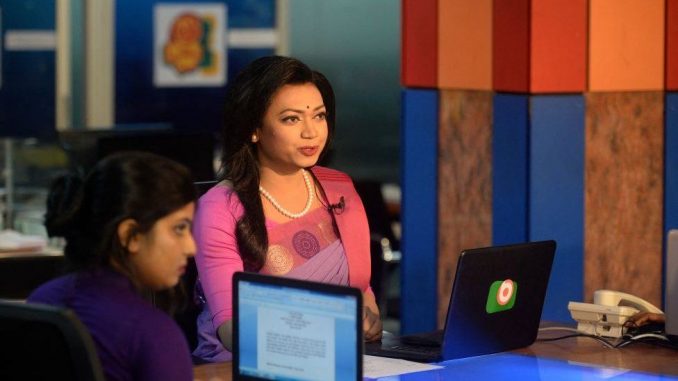
March 8 marked International Women’s Day but it was also the first time that a trans news reader graced national television in Bangladesh.
29-year-old Tashnuva Shishir delivered a 3-minute news bulletin on a private TV station which served as her first television debut.
Being on television as a trans woman in conservative Bangladesh is a big step towards progress for trans people in India. She has spent her whole life trying to advance in her professional career so she could have a platform to speak her mind.
“Today, I got that platform,” she said in an interview.
Many trans people in India still face discrimination and violence, with only few opportunities when it comes to employment. Some are still forced to work in the sex trade and are often seen begging in the streets.
Shishir expressed that she was not exempt from this violence and discrimination and was often bullied for being trans growing up. She figured out that she was transgender in her early teens and had experienced severe mental anguish as well as sexual harrassment.
“The bullying was so unbearable I attempted suicide four times. My father stopped talking to me for years,” said Shishir.
“When I couldn’t cope with it any more, I left home … I couldn’t stand the neighbours telling my father about how I should act or walk in a masculine way.”
Shishir decided to flee from home and live in the capital of Dhaka. She then moved to the central city of Narayanganj. She was able to finish her masters in public health in Dhaka.
“I never left school. My sixth sense always told me to keep studying. If I continue reading, I will be able to go somewhere,” she said. “I continued my studies despite enduring hundreds of insults day after day. All I had in mind is that I should continue my studies.”
She applied to many TV stations for work but only the private station Boishakhi was “brave enough to take me in.”
Although the channel took a high risk of backlash and negative reviews from viewers, they were determined to give Shishir a chance. Before going on air, she said that she felt like she was “shaking inside”, but she had tried to think of all the performances she’s done in the past to curb the nervousness.
After reading the news report, she broke down in tears. She felt that she had succeeded, not only for herself but also for the rest of the trans community.
The anger she felt about not being a cisgendered boy or girl at a younger age was now replaced by pride in being a pioneer in the LGBT community of Bangladesh.
“Maybe the creator created me and paved the way for the development of the destiny of this community,” she said.
She is slated to be in two films by the end of the year.
The Bangladeshi government has made progress for trans people to be recognized as a separate gender in 2013. In 2018, they were allowed to register to vote as a third gender. Though there is still much work to be done with regard to trans rights, trans visibility such as Shishir’s presence on television is another step towards progress.
Be the first to comment